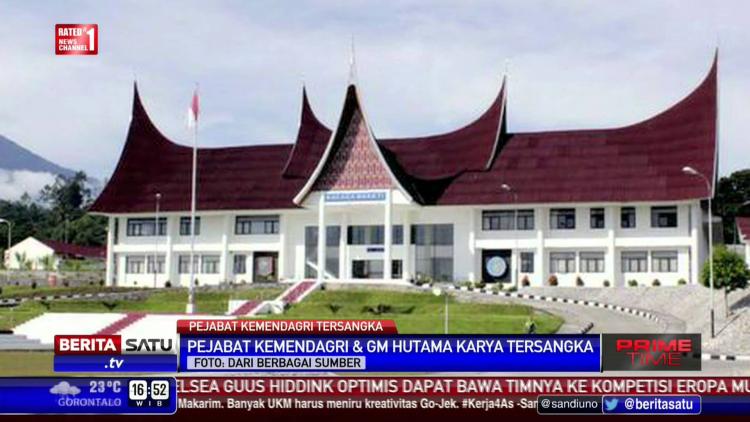Corruption in the Construction of the IPDN Building

The Corruption Eradication Commission (KPK) again summoned witnesses in the case of corruption of the construction of the Institute of Domestic Governance (IPDN) campus in Agam Regency, West Sumatra Province, on May 12, 2018. The four witnesses examined were Raden Pedi Lestario as project head from PT Hutama Karya, Jusuf Sitorus and Kurniati Evilia as staff of PT Hutama Karya, and Zaim Susilo as former staff of PT Hutama Karya.
The four witnesses were examined in the trial of suspect Dudy Jocom, who was the Commitment Making Official (PPK) at the Center for Financial Administration and Asset Management of the Secretariat General of the Ministry of Home Affairs in 2011. Dudy was named as a suspect on March 2, 2016 and detained on February 22, 2018. In addition to Dudy, KPK also named former Head of Building Division of PT Hutama Karya, Budi Rachmat Kurniawan as a suspect. Dudy allegedly misused the authority to enrich himself and others, resulting in a state loss of Rp 34 billion from the total value of the project, Rp 125 billion.
The construction of the IPDN campus building used budget from the Ministry of Home Affairs (Kemendagri) in 2011. In addition to in Agam Regency, in that year Kemendagri also constructed campus buildings in Minahasa regency, North Sulawesi, Rokan Hilir regency, Riau, Makassar, South Sulawesi; Pontianak Regency, West Kalimantan, and several other locations.
Besides in Agam Regency, corruption in the construction of IPDN buildings also occurred in Rokan Hilir, Riau Province. KPK again named Dudy Jocom and Budi Rachmat Kurniawan as suspects, and in addition Bambang Mustaqim as Senior Manager of PT Hutama Karya. The three suspects allegedly misused the authority to enrich themselves, others and the corporation, costing the state up to Rp 34 billion of the total project of Rp 91.62 billion.
IPDN is a Higher Education Institution in Ministry of Home Affairs that aims to prepare government cadres, both at the regional level and at the central level. How would IPDN be able to produce qualified graduates if one of the facilities in their learning activities is subject to corruption? In addition, the corruption of the IPDN building can also cause feelings of insecurity because of fears of collapse. In some cases indeed, corruption in the construction of buildings eventually resulted in loss of life when the building collapsed.
Corruption in the education sector, such as the IPDN building corruption, is especially ironic. On the one hand educational institutions are expected to be able to teach anti-corruption values, but on the other hand, it is often found that educational institutions even become places for corruption.
Referring to the 2017 Corruption Trends issued by Indonesia Corruption Watch, the education sector is the third largest sector suffering from corruption throughout 2017. There are at least 53 cases of corruption in the education sector with state losses reaching Rp 81.8 billion. The amount is the corruption revealed and handled by law enforcement. If there is still a lot of corruption in the education sector, although the government has allocated a minimum education budget of 20 percent, it seems that improvements in the quality of education will not necessarily be achieved if much of the budget is still subject to corruption. (Tari/Ade)










